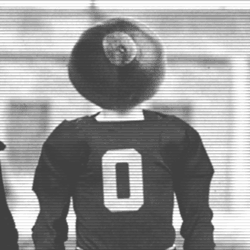Called to Coach: Reflections on Life, Faith, and Football
Bobby Bowden with Mark Schlabach
Copyright 2010
Howard Books
A few highlights from Coach Bowden’s story:
- In 1943 as 13-year-old, Bowden was diagnosed with rheumatic fever and had to spend nearly a year in bed rest.
- Growing up in Birmingham, Alabama, Bowden was obviously a fan of the Crimson Tide. He once tried to get Bear Bryant to hire him as an assistant (Bear politely said, “No”), once applied for the head coaching position in 1986 (they hired Bill Curry instead), and once turned down the position in 1989 (Gene Stallings took the position).
- Bowden coached at Florida State twice. Once from 1963 – 1965 as a wide receivers coach, and the second time from 1976 to 2009 as head coach.
- Bowden coached two notable names in his first stint as wide receivers coach. One, Fred Biletnikoff, who led the nation in yards and touchdowns in 1964 and was an All-American. An award is given by the Tallahassee Quarterback Club Foundation to the nation’s most outstanding receiver and is named after him. A second player, in 1965, T.K. Wetherall, would later become President of Florida State and would be the one to force his retirement.
- In 1966, former West Virginia Governor and Senator, Joe Manchin was set to be Bowden’s starting quarterback but injured his knee and ended his playing career.
- In 1979, LSU made a strong effort to hire Bowden away from Florida State, but after beating them in a head-to-head matchup, Bowden decided to stay in Tallahassee.
- In 1981, Florida State played 5 consecutive road games, at Nebraska, Ohio State, Notre Dame, Pittsburgh, and Louisiana State.
- Bobby’s son, Terry, began his coaching career at Salem in 1983 and his first recruited quarterback was Jimbo Fisher.
- In 1997, Bowden recruited Drew Henson, a highly sought-after quarterback from Brighton, Michigan. Henson told Bowden that he would not come if he also signed Chris Weinke. Bowden vetoed a staff vote and chose Weinke over Hensen who ended up at Michigan.
- In 2004, Bowden lost a son-in-law, former player John Allen Madden, and grandson Bowden Madden in a car accident. He coached the following game.
A quote for college football fans:
I am not going to lie: losing Miami year after year was frustrating. As good as our teams were, we still had not won a national championship, primarily because we kept losing to the Hurricanes on missed kicks. I used to get mad because no other contender was playing Miami, but I still had to play the Hurricanes every year. Notre Dame quit playing them. Florida quit playing them. Penn State quit playing them. But Miami was still on my schedule every season, and it was always the game that made or broke our season. At one point I said, “When I die, they’ll put on my tombstone, ‘At least he played Miami.’”
A quote for Ohio State fans:
When I met with my team before the 1991 season, I wanted to make sure they knew I was not obsessed with winning a national championship. By then the media were starting to say and write that I had “Bo Schembechler Syndrome.” Bo was a great coach at the University of Michigan, leading the Wolverines to nearly two hundred victories in twenty-one seasons, but he never led them to a national championship.
But heading into the 1991 season, everybody was saying Tom [Nebraska head coach Tom Osborne] and I were the best coaches never to have won a championship. Everybody else believed I could not lead my team to victory in a big game when it really mattered. They all said, “He can’t win the big one.”
My Review:
Memoirs by college football coaches tend to be breezy reads moving quickly from one season to the next pausing only for the occasional big game, controversy or impactful player. Bobby Bowden’s coaching career spanned 60 years, so Schlabach necessarily needs to keep things moving while also finding continuity and depth to one of college football's greatest characters.
Readers will find Bowden to be vocal and unapologetic about his Christian faith. One wonders if Bobby were not a college football coach that perhaps he would have been a Baptist minister. Bible verses are frequently quoted, and Bobby makes it a point to communicate a traditional version of the gospel to his readers multiple times.
Why was Bowden so successful? Among other things, Bowden had a gift for storytelling, a self-deprecating style of humor and is skilled at connecting with people across all sorts of backgrounds. His timing as Florida State’s head coach aligned with the population shift, increase in talent, and dominance of football in the south.
A career this long inevitably invites comparisons to other coaches. Notable is Penn State’s Joe Paterno who wrote the forward and who Bowden was in competition with at the end of their careers for the most coaching wins of all time. Both coaches would be forced out of their jobs sooner than they wanted, and both had wins vacated for violations and scandals. Another comparison is Clemson’s Dabo Swinney who succeeded Bowden’s son, Tommy, and likewise is vocal about his Christian faith. One wonders how vocal a coach can and should be about their religious faith in this era compared to the past.
Towards the end of the book Schlabach leaves the readers wanting more during the zenith of Bowden’s coaching career. The mid-90’s, the era that Bowden is most known for, does not come until chapter 11 of 17. A chapter is named, “Wide Right” but more could have been said about the rivalry with Miami. There were two Heisman winners that played for Bowden, Ward and Wienke, and a number that played against him, Testaverde, Torreta, and Wuerffel, but the epic nature of those battles were diluted by the need to keep pace.
About the Author (from the cover)
Mark Schlabach is a national college football columnist for ESPN.com and is a regular guest on television programs across the ESPN platform. A former staff writer for The Atlanta Journal-Constitution and The Washington Post, Schlabach has covered college football for nearly two decades. He is a 1996 graduate of Georgia.

